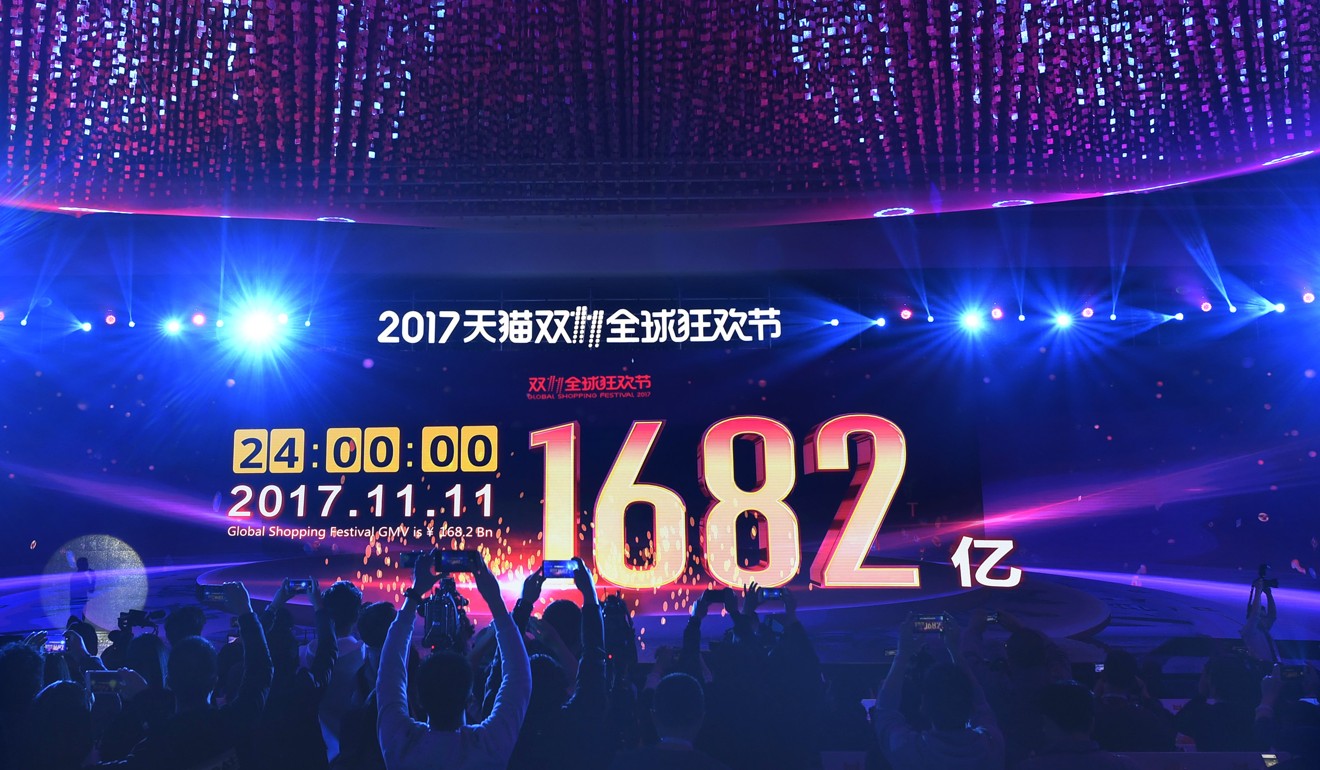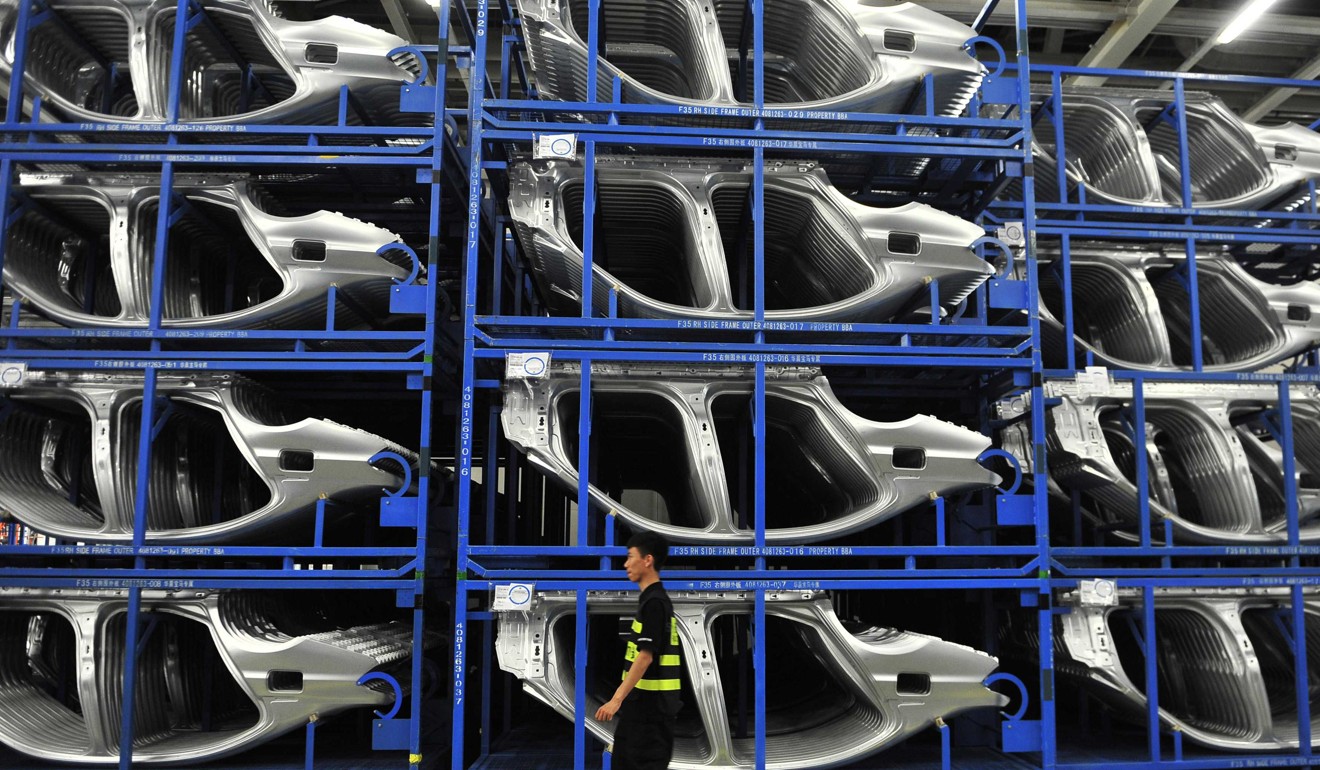
Want to get consumers to buy into your brand? Digital is the way forward
The market is being reinvented – and this presents a huge opportunity for businesses to develop a true sense of purpose and organise themselves accordingly
After the past few weeks of cold weather, it is entirely likely that many shoppers who would normally flood to Tsim Sha Tsui and Causeway Bay to browse boutiques and department stores are bundled up at home (or at coffee houses), and have taken to their laptops and mobile phones instead to satisfy their shopping desires.
But the weather is not the only driving force changing the shopping landscape. Anyone seeking evidence that digital commerce is booming in China needs only to look to Singles’ Day 2017. The event smashed all previous records, with Alibaba Group Holding alone raking in 168 billion yuan (US$25.3 billion) in sales in just 24 hours, up from 120.7 billion yuan last year. Alipay, Alibaba’s mobile wallet app, recorded 256,000 payment transactions per second as shoppers from more than 200 countries and regions stocked up on an unprecedented range of products.
Recent research by Accenture reveals that the relentless rise of mobile technologies has been a major contributor to a majority – 94 per cent – of Chinese consumers now expecting their offline and online shopping activities to be integrated into a seamless omnichannel journey. They want to buy as and when they wish, often crowdsourcing opinions and recommendations on social media. They also look for hyper personalised experiences, where their shopping needs are anticipated and product information is delivered to them predictively – before they even know they want it. Indeed, 76 per cent of urban Chinese consumers consider receiving real-time, bespoke offers as a defining feature of the modern shopping experience.

As online competitors seize an ever-increasing share of the marketplace, they are calling the whole rationale of traditional retail into question.
What do retailers really stand for nowadays? A strong brand and enthusiastic workforce are still important, of course. But they need to dig deeper and ask what their brand really means to consumers, what it can do for them, and what makes it unique.
New balance of power
With seamless online shopping increasingly the norm, the balance of power has shifted dramatically. Nowadays, when consumers interact with retailers, they need to be persuaded to buy into their brand. And for that to happen, they need to believe in it.
This means a company’s management team must believe in the brand. It creates a new set of priorities. Each retailer needs to ensure its core message reaches the consumer across every touchpoint – from in-store to website to social media. That is a case of continuous education with your team about what your brands stand for.
Consumers inhabit physical and virtual communities. Brands have to be consistently visible, relevant and clearly understood in both. If retailers can make that happen, they will be in the right place at the right time, well placed to identify changing consumer needs and behaviours, and adapt to them. Flexible but authentic, they will become “living brands”, in other words.
This will not happen overnight. How retailers are structured, how their people (and partners) work, and the technologies they use will all have to evolve.
The journey to become intelligent businesses
As artificial intelligence permeates organisations, we will see more machines handling repetitive tasks, with people freed up to add value in customer-facing roles. The successful companies will be the retailers that capitalise on the torrent of data, structured and unstructured, at their disposal.
Smart managers need to make sure their businesses embed analytics into the fabric of their operations, becoming “intelligent” businesses that can think, learn, comprehend and act in real time, ahead of the competition.

They need to take advantage of new technologies to better present their products. Consider how BMW is revolutionising the car buying experience, with the BMW iVisualiser, an augmented reality solution that lets customers experience full-scale, photorealistic, virtual versions of cars, with adjustable options for exteriors and interiors.
Such offerings are not just good for customers, they enable businesses to adapt to fast changing marketplace dynamics, and that helps their brands attract and retain the talent they will need to grow. Employees take as much notice of brands as consumers, after all.
A majority of Chinese consumers now expect their offline and online shopping activities to be integrated into a seamless omnichannel journey
The power of partnership
Recognising that shoppers want online and bricks-and-mortar shopping experiences to merge, Alibaba, which owns the South China Morning Post, encouraged high street stores to join in on Singles’ Day this year. Some retailers showcased “cloud shelves” for customers to shop for products not available on physical stores shelves. Others leveraged virtual fitting rooms. Meanwhile, its business-to-consumer marketplace, Tmall, opened 60 physical pop-up stores in 52 malls in 12 cities in China, powered by Alibaba’s retail technologies such as augmented reality and mobile payments.
It is clear traditional retailers cannot continue as they are. Their market is being fundamentally reinvented by digital. That creates a new set of challenges. It is also a huge opportunity for businesses that can develop a true sense of purpose and organise their people, processes and partnerships around it.
Kher Tean Chen is head of Accenture’s products business in Greater China
